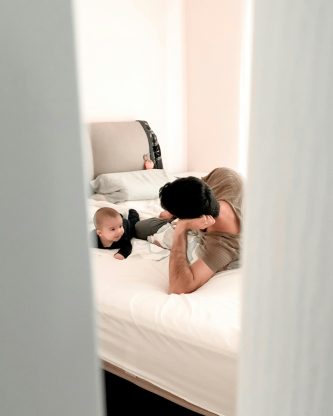Table of Contents
Establishing Expectations
The first step in mastering effective communication with your babysitter is to establish clear expectations from the very beginning. This includes outlining your child’s routine, any specific rules or guidelines you want the babysitter to follow, and any special instructions or requirements for your child’s care. Be sure to discuss any allergies, medical conditions, or other important information that your babysitter needs to know. By setting clear expectations upfront, you can prevent misunderstandings and ensure that your babysitter knows exactly what is expected of them.
On-Demand Childcare in Your Neighborhood
Book a Sitter
Creating a Communication Plan
Once you have established expectations, it is important to create a communication plan with your babysitter. This includes discussing how and when you will communicate with each other, whether it be through text, phone calls, or in person. It is also helpful to set aside time for regular check-ins to discuss any issues or concerns that may arise. By having a communication plan in place, you can ensure that both you and your babysitter are on the same page and that any issues can be addressed promptly.
Setting Boundaries and Guidelines
In addition to establishing expectations and creating a communication plan, it is important to set boundaries and guidelines for your babysitter. This includes outlining what is and is not allowed while caring for your child, as well as any specific rules or routines that you want your babysitter to follow. It is also important to discuss any boundaries you have when it comes to your own personal space or privacy. By setting clear boundaries and guidelines, you can create a respectful and professional relationship with your babysitter.

Providing Feedback and Encouragement
Effective communication with your babysitter also involves providing feedback and encouragement on a regular basis. Be sure to offer praise and appreciation for a job well done, as well as constructive criticism when necessary. It is important to communicate openly and honestly with your babysitter, so that they can continue to improve and grow in their role.
By providing regular feedback and encouragement, you can help to build a positive and supportive relationship with your babysitter.
Handling Difficult Conversations
Finally, mastering effective communication with your babysitter involves knowing how to handle difficult conversations. Whether it be addressing behavioral issues with your child, discussing a change in schedule, or addressing any concerns or conflicts that may arise, it is important to approach these conversations with empathy, respect, and open communication. Be sure to listen to your babysitter’s perspective and concerns, and work together to find a solution that works for both parties. By handling difficult conversations with care and professionalism, you can maintain a positive and successful relationship with your babysitter.
In conclusion, mastering effective communication strategies with your babysitter is essential for a successful caretaking relationship. By establishing clear expectations, creating a communication plan, setting boundaries and guidelines, providing feedback and encouragement, and handling difficult conversations with care and professionalism, you can ensure that both you and your babysitter are on the same page and that your child receives the best possible care. Communication is key in any relationship, and by mastering these strategies, you can build a strong and trusting relationship with your babysitter for years to come.










